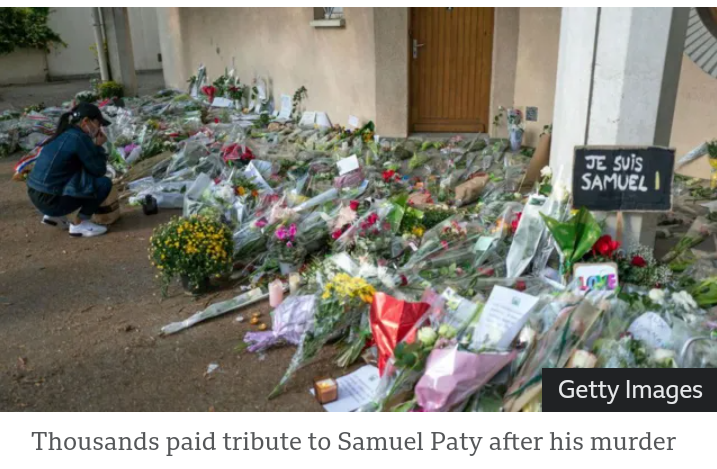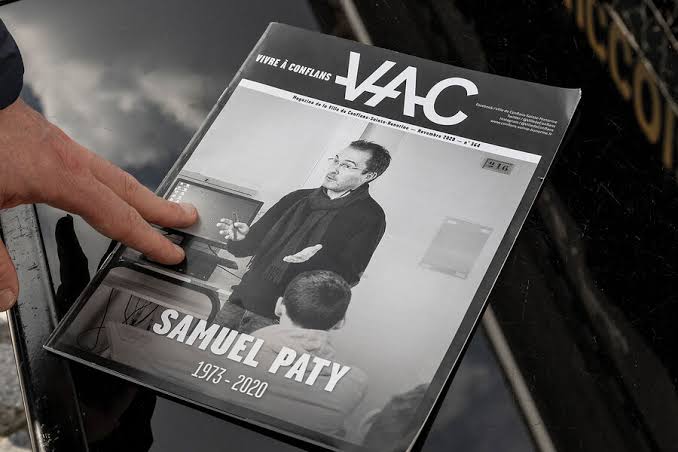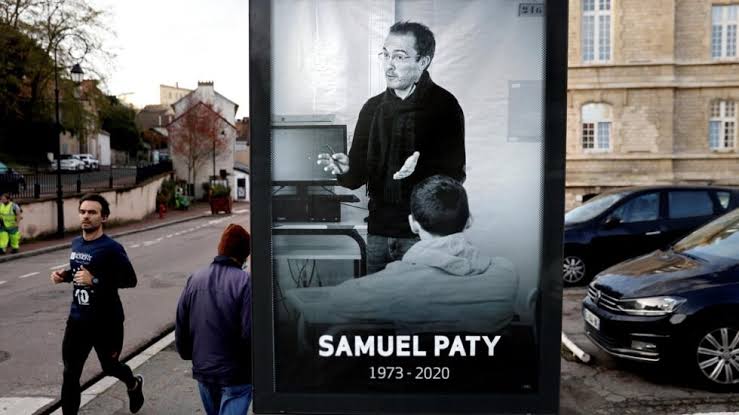Trial Begins In Paris Over Teacher Samuel Paty’s 2020 Murder.
The trial has begun in Paris for eight individuals accused of encouraging the killer of Samuel Paty, a secondary school teacher who was brutally murdered in October 2020 after showing cartoons of the Prophet Muhammad during a lesson on freedom of speech. Paty’s beheading shocked France and highlighted the country’s ongoing struggle with issues of free expression and religious extremism.
The attacker, Abdoullakh Anzorov, an 18-year-old of Chechen descent, was killed by police shortly after the attack, making this trial more focused on the events and influences that led up to the murder. Over the coming weeks, the court will examine the social media-fuelled campaign that targeted Paty, ignited by a false claim from a 13-year-old pupil who accused him of insulting Islam. This falsehood rapidly spiralled into an international hate campaign that ultimately led to the deadly attack.
On trial are two men accused of publicly labelling Mr Paty a “blasphemer” online, as well as two friends of Anzorov who allegedly assisted him in acquiring weapons and provided transportation to the school. Four additional defendants are charged with offering Anzorov encouragement via chat platforms.
The incident dates back to 6 October 2020, when Paty, a respected history teacher at a school in Conflans-Sainte-Honorine, gave a lesson on freedom of speech, referencing the infamous 2015 attack on Charlie Hebdo magazine. He briefly displayed cartoons of the Prophet Muhammad and advised any students who might be offended to avert their gaze.
Following this, the 13-year-old girl fabricated a story for her father, claiming that Paty had shown a disrespectful image of the Prophet and asked Muslim students to leave the classroom. Her father, Brahim Chnina, posted videos online repeating the false claim and naming Paty, while a local Islamist activist, Abdelhakim Sefrioui, released a 10-minute video further condemning the teacher. In a matter of days, the school was flooded with hate messages and threats from around the world.
The lie eventually reached Anzorov, who saw himself as a “defender of Islam.” With the help of two friends, he acquired weapons and travelled to Paty’s school, where he committed the murder on 16 October. The defendants have acknowledged their involvement with Anzorov but deny the charges of “terrorist association” and “complicity to commit terrorist murder.”

Lawyers representing Chnina and Sefrioui argue that while they criticised Paty, they did not incite violence against him. Defence lawyers for Anzorov’s friends assert that they were unaware he intended to carry out an attack.
Prosecutors argue that in the charged atmosphere of 2020—when Charlie Hebdo had just re-published controversial cartoons and a separate machete attack had recently occurred in Paris—the public condemnation of Mr Paty was equivalent to marking him as a target for terrorists.
A year ago, the girl who initiated the false accusations was convicted in a minors’ court and given a suspended sentence. Additionally, five other students were convicted for assisting Anzorov in locating Paty in exchange for payment.

This trial, which is expected to continue until late December, underscores the tragic consequences of misinformation and the responsibility borne by those who fuel online hate campaigns. As a mark of respect, UEFA has announced a moment of silence for Samuel Paty during this week’s European football matches, underscoring the profound impact of this case on French society.


